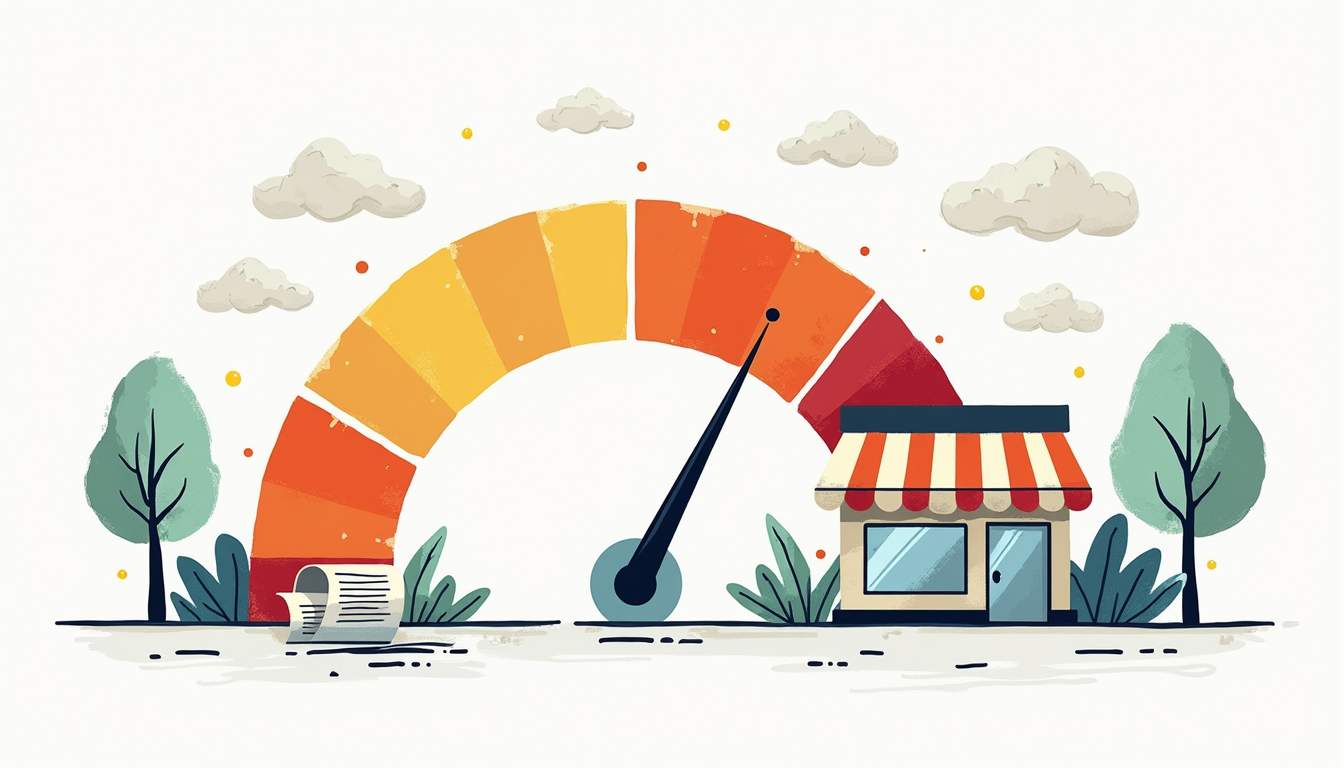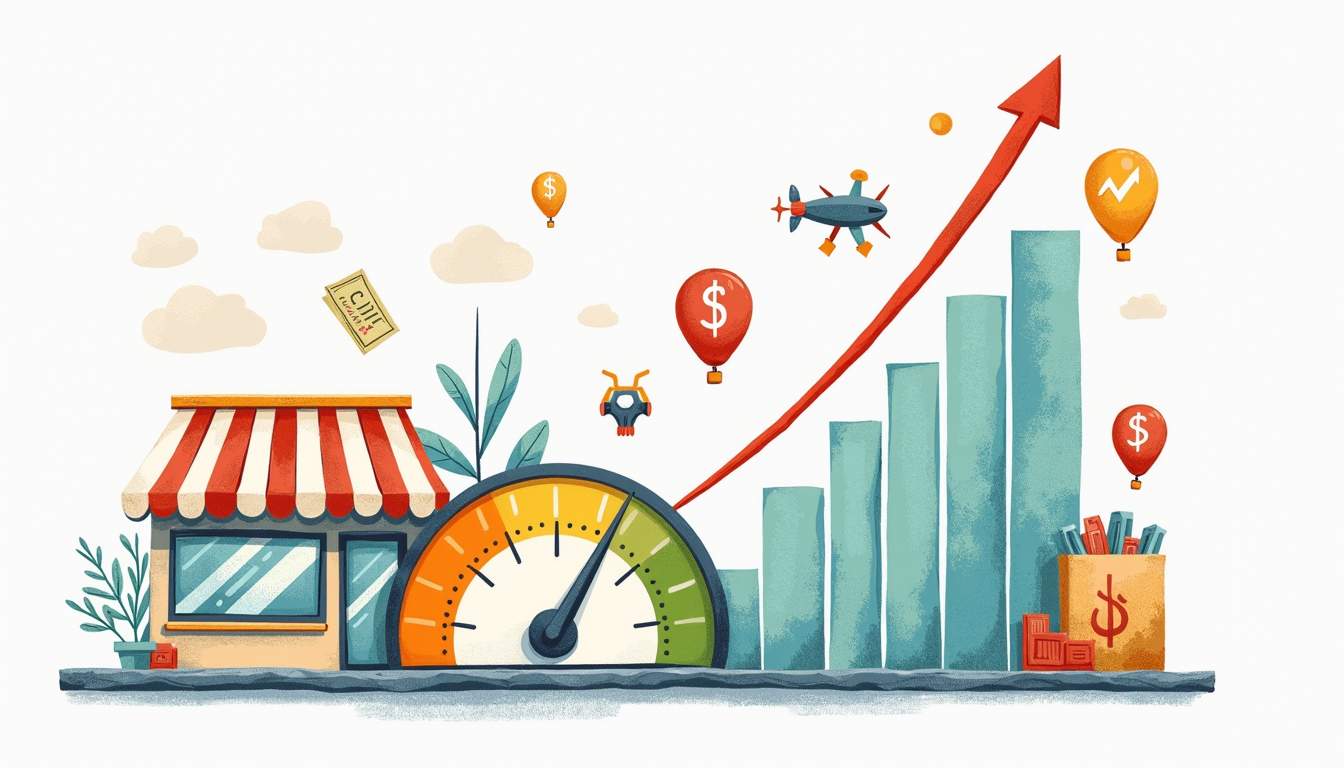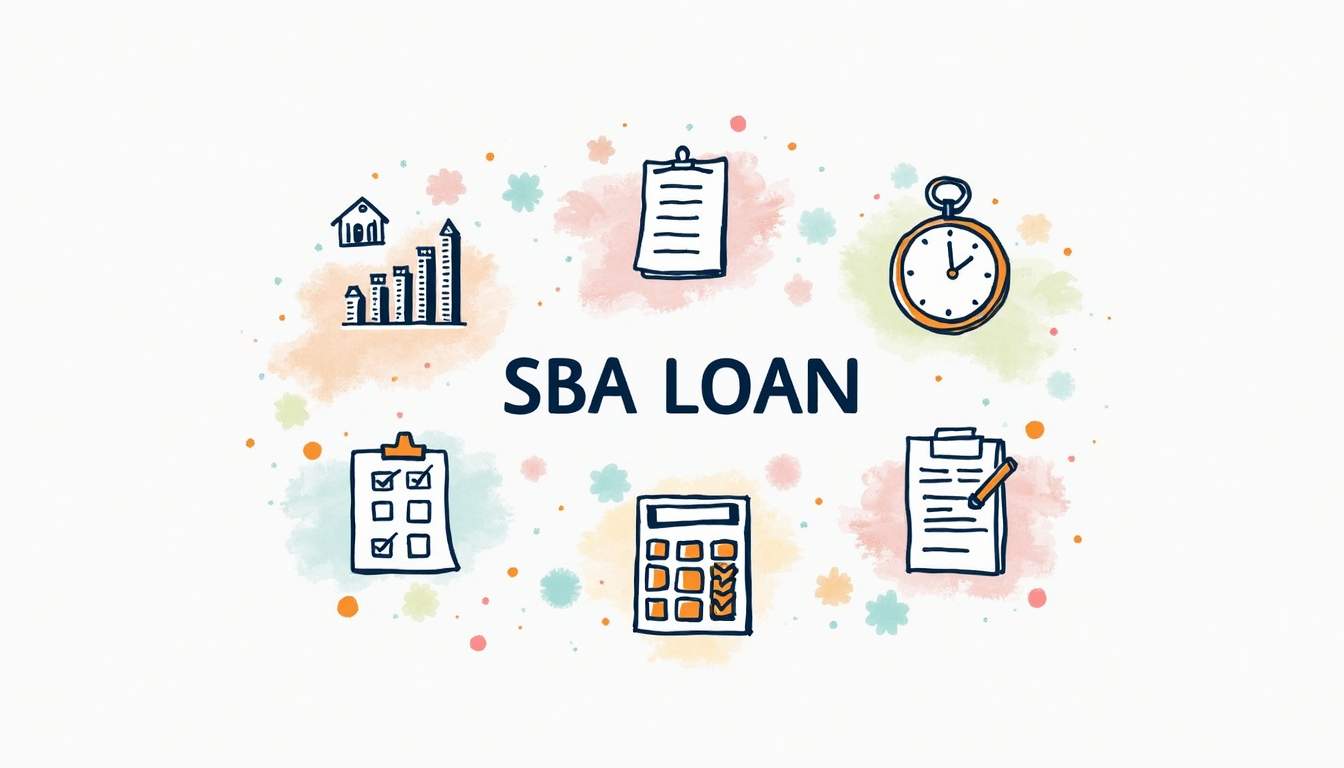Small Business Administration (SBA) loans are a popular choice for entrepreneurs seeking financial support to start or grow their businesses. However, understanding the requirements for these loans can be daunting, especially when it comes to credit scores. This article will explore the minimum credit score needed for an SBA loan, the implications of your credit score, and tips for improving it.

Understanding SBA Loans
SBA loans are designed to help small businesses access financing that might not be available through traditional lending channels. The SBA does not lend money directly; instead, it guarantees a portion of loans made by approved lenders. This guarantee reduces the risk for lenders and encourages them to offer loans to small businesses. By providing this safety net, the SBA plays a vital role in fostering entrepreneurship and economic growth in communities across the nation, making it easier for aspiring business owners to turn their ideas into reality.
There are several types of SBA loans, including the 7(a) loan program, the 504 loan program, and microloans. Each of these has its own specific requirements, but credit score is a common factor across all types. Additionally, the SBA also offers specialized loan programs aimed at specific sectors, such as veterans, women, and minority-owned businesses, further enhancing accessibility to funding for diverse entrepreneurs.
Types of SBA Loans
The most common type of SBA loan is the 7(a) loan, which can be used for various purposes, including working capital, equipment purchases, and real estate. The 504 loan program is geared towards purchasing fixed assets, while microloans are smaller loans aimed at startups and very small businesses. These microloans, typically ranging from $500 to $50,000, are especially beneficial for entrepreneurs who may not have established credit histories or collateral to secure larger loans.
Understanding the differences between these loan types can help borrowers choose the one that best fits their needs. Each type has unique requirements, but credit scores play a crucial role in the approval process. Furthermore, potential borrowers should also consider the terms and conditions associated with each loan type, including interest rates, repayment periods, and any fees that may apply. By carefully evaluating these factors, small business owners can make informed decisions that align with their financial strategies and long-term goals, ultimately setting the stage for sustainable growth and success.
Minimum Credit Score Requirements
While the SBA does not set a specific minimum credit score for all loans, lenders typically look for a score of at least 640 for the 7(a) loan program. However, some lenders may have higher requirements, especially for larger loan amounts or for businesses with less established credit histories. It is essential for potential borrowers to shop around and understand that different lenders may apply varying criteria based on their risk assessment models. This means that even if one lender turns you down, another might still see potential in your application.

For the 504 loan program, the minimum credit score can also vary, but a score of 680 or higher is often preferred. Microloans may have more flexible requirements, but having a good credit score can still improve the chances of approval. Additionally, some lenders may offer programs specifically designed for startups or businesses in underserved markets, which can provide opportunities for those with lower credit scores to secure funding.
Why Credit Score Matters
Your credit score is a reflection of your creditworthiness and financial behavior. Lenders use it to assess the risk of lending to you. A higher credit score indicates that you have a history of managing credit responsibly, which can lead to better loan terms and lower interest rates. This is particularly important for small businesses, where every percentage point in interest can significantly impact cash flow and overall profitability. Moreover, a strong credit score can enhance your negotiating power with lenders, allowing you to discuss favorable terms that align with your business goals.
Conversely, a lower credit score can signal to lenders that you may be a higher risk, potentially leading to higher interest rates or even denial of the loan application. Understanding this can help borrowers take proactive steps to improve their credit scores before applying for an SBA loan. Strategies such as paying down existing debt, ensuring timely payments, and regularly reviewing credit reports for inaccuracies can be effective in boosting your score. Additionally, engaging with credit counseling services can provide valuable insights and tailored advice for managing finances and improving creditworthiness, ultimately paving the way for better financing options in the future.
Factors Influencing Your Credit Score
Several factors contribute to your credit score, and understanding them can help you make informed decisions about your financial health. The main components include payment history, credit utilization, length of credit history, types of credit used, and recent credit inquiries.
Payment History
Payment history is the most significant factor in determining your credit score. It accounts for about 35% of your score. Making payments on time is crucial; late payments can negatively impact your score for years. Setting up automatic payments or reminders can help ensure you never miss a due date.
Credit Utilization
Credit utilization refers to the ratio of your current credit card balances to your credit limits. Ideally, this ratio should be kept below 30%. High credit utilization can indicate financial distress and may lower your credit score. Paying down existing debt and avoiding maxing out credit cards can help maintain a healthy credit utilization ratio.
Improving Your Credit Score
Improving your credit score takes time, but there are several strategies that can help expedite the process. Whether you’re preparing to apply for an SBA loan or simply looking to enhance your financial standing, consider the following tips.

Review Your Credit Report
The first step in improving your credit score is to obtain a copy of your credit report. You are entitled to one free credit report per year from each of the three major credit bureaus: Experian, TransUnion, and Equifax. Review your report for any inaccuracies or errors that may be negatively impacting your score.
If you find any discrepancies, dispute them with the credit bureau to have them corrected. This can lead to an immediate improvement in your credit score.
Pay Down Existing Debt
Reducing your overall debt load can have a significant positive impact on your credit score. Focus on paying down high-interest credit cards first, as this will not only improve your score but also save you money in interest payments over time.
Consider using the snowball or avalanche method for debt repayment. The snowball method involves paying off smaller debts first to build momentum, while the avalanche method focuses on paying off debts with the highest interest rates first.
Establish a Positive Credit History
If you have a limited credit history, consider taking steps to establish one. This can include opening a secured credit card, becoming an authorized user on someone else’s credit card, or taking out a small personal loan. Making timely payments on these accounts will help build your credit profile.
Other Considerations When Applying for an SBA Loan
In addition to credit scores, lenders consider several other factors when evaluating an SBA loan application. Understanding these can help you present a stronger application and improve your chances of approval.

Business Plan
A well-structured business plan is essential when applying for an SBA loan. Lenders want to see that you have a clear vision for your business, including how you plan to use the funds and your strategy for repayment. Your business plan should include detailed financial projections, market analysis, and a description of your target audience.
Cash Flow and Financial Statements
Demonstrating strong cash flow is crucial for securing an SBA loan. Lenders will typically require financial statements, including profit and loss statements, balance sheets, and cash flow statements. These documents provide insight into your business’s financial health and ability to repay the loan.
Collateral
Many SBA loans require collateral to secure the loan. This could include business assets such as equipment, real estate, or inventory. Offering collateral can improve your chances of approval and may lead to more favorable loan terms.
Common Myths About SBA Loans
There are several misconceptions surrounding SBA loans that can lead to confusion among potential borrowers. Clearing up these myths can help entrepreneurs make informed decisions about their financing options.
Myth: SBA Loans Are Only for Startups
While SBA loans are an excellent option for startups, they are also available to established businesses looking to expand or refinance existing debt. Many entrepreneurs overlook these loans because they believe they are only for new businesses, which is not the case.
Myth: SBA Loans Are Difficult to Obtain
While the application process for SBA loans can be thorough, it is not necessarily more difficult than obtaining a traditional loan. With proper preparation and a strong application, many businesses find success in securing SBA financing.
Myth: You Need Perfect Credit to Qualify
While a good credit score is important, it is not the only factor considered by lenders. Many borrowers with less-than-perfect credit have successfully secured SBA loans by demonstrating strong business fundamentals and a solid repayment plan.
Conclusion
Understanding the minimum credit score for an SBA loan is just one piece of the puzzle. While a score of 640 is often the benchmark for the 7(a) loan program, various other factors come into play during the application process. By taking steps to improve your credit score, preparing a solid business plan, and understanding the requirements, you can enhance your chances of obtaining the financing you need to grow your business.
Whether you are a seasoned entrepreneur or just starting, being informed about SBA loans can empower you to make better financial decisions. With the right preparation, securing an SBA loan can be a significant step towards achieving your business goals.
Ready to Grow Your Business with BoomerBiz Loans?
Now that you’re equipped with the knowledge of what it takes to secure an SBA loan, it’s time to take action. At BoomerBiz Loans, we specialize in helping baby boomers like you acquire businesses with ease. Our streamlined loan application process is designed to get you fast approvals, often within 24–48 hours. With competitive low-interest rates, flexible terms, and loans up to $10M, we’re here to support both first-time buyers and experienced entrepreneurs. Don’t let financing be a hurdle to your business goals. Start Your Loan Application today and step into the future with confidence.
